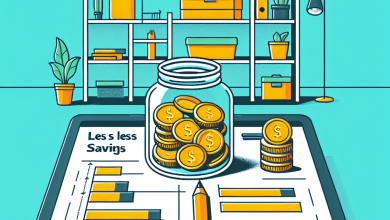
The Psychology of Spending: How Your Lifestyle Choices Affect Your Finances
The Psychology of Spending: How Your Lifestyle Choices Affect Your Finances
In a world where consumerism reigns supreme, understanding the psychology of spending has never been more crucial. Our financial well-being is inextricably linked to our lifestyle choices, and how we manage our money often reflects deeper psychological patterns and societal influences. This article delves into the intricate relationship between lifestyle choices, psychological triggers, and financial health, offering insights into how we can make better financial decisions.
The Emotional Underpinnings of Spending
Spending habits are seldom made in a vacuum; they are influenced by a host of emotional and psychological factors. For many, shopping serves as a form of emotional release or escapism. Identifying the emotions tied to spending is essential for controlling impulsive purchases. According to a study published in the Journal of Consumer Research, people often engage in what is known as "retail therapy," where shopping temporarily alleviates feelings of stress, sadness, or anxiety. Unfortunately, this pattern can lead to overspending, resulting in financial strain.
The Influence of Social Comparison
Social comparison plays a significant role in shaping our purchasing behaviors. The rise of social media has amplified this effect, as we are continually exposed to curated images of others’ lifestyles. Seeing friends and influencers flaunting luxury goods, extravagant vacations, or high-status experiences can trigger feelings of inadequacy, prompting individuals to spend beyond their means in a bid for social validation.
This phenomenon is fueled by what psychologists term “the fear of missing out” (FOMO). In a society that equates worth with material possessions, individuals often feel compelled to purchase goods and services to keep up with perceived social norms. Studies, such as one conducted by the American Psychological Association, indicate that those who experience significant levels of FOMO are more likely to engage in impulsive spending, leading to financial repercussions.
The Role of Habits and Routines
Beyond emotional influences, our spending is also governed by habits formed over time. These ingrained behaviors may stem from childhood experiences, familial financial practices, or societal norms. For instance, someone raised in a family that prioritized saving might have a tendency towards frugality, while another raised in a more permissive financial environment might exhibit compulsive buying behaviors.
Understanding how habits affect spending is critical. Behavioral economists emphasize the importance of small, consistent changes in spending habits. By replacing automatic spending with deliberate budgeting practices, individuals can reshape their financial destinies without drastically altering their lifestyles.
Lifestyle Choices: The Direct Link to Financial Health
Lifestyle choices—including housing, transportation, and leisure activities—directly impact financial health. For instance, individuals who choose to live in expensive neighborhoods may incur higher housing costs, which can limit their ability to save for the future. Similarly, those who opt for luxury vehicles or frequent dining out can find their budgets constrained, leaving little room for emergency savings or retirement contributions.
Moreover, lifestyle inflation—a phenomenon where individuals increase their spending as their income grows—can further exacerbate financial challenges. People often fall into the trap of upgrading their lifestyles to match their incomes, neglecting to prioritize savings and investments.
Strategies for Mindful Spending
-
Set Clear Financial Goals: Define what financial stability means for you. Having clear goals can help maintain focus and discourage impulsive spending.
-
Create a Budget: Developing a realistic budget allows you to allocate funds judiciously, distinguishing between essential and discretionary spending.
-
Practice Mindfulness: Before making a purchase, pause and consider whether it aligns with your values and long-term goals. Ask yourself if the item will genuinely enhance your life or if it is a temporary fix for an emotional need.
-
Limit Social Media Exposure: Reducing time spent on social media can mitigate feelings of FOMO and decrease the urge to compare oneself to others.
- Cultivate Gratitude: Practicing gratitude can shift your focus from what you lack to appreciating what you have, reducing the desire to spend unnecessarily.
Conclusion
The psychology of spending is a complex interplay of emotional triggers, societal norms, and personal habits. Our lifestyle choices significantly influence our financial well-being, often pushing us towards overspending and debt. By fostering awareness of the psychological dynamics at play and implementing mindful spending strategies, individuals can regain control over their finances and make more sustainable choices that promote long-term financial health. Recognizing that each spending decision reflects our values and priorities is the first step towards a more balanced and prosperous life.
 GOOGL
GOOGL  META
META 


